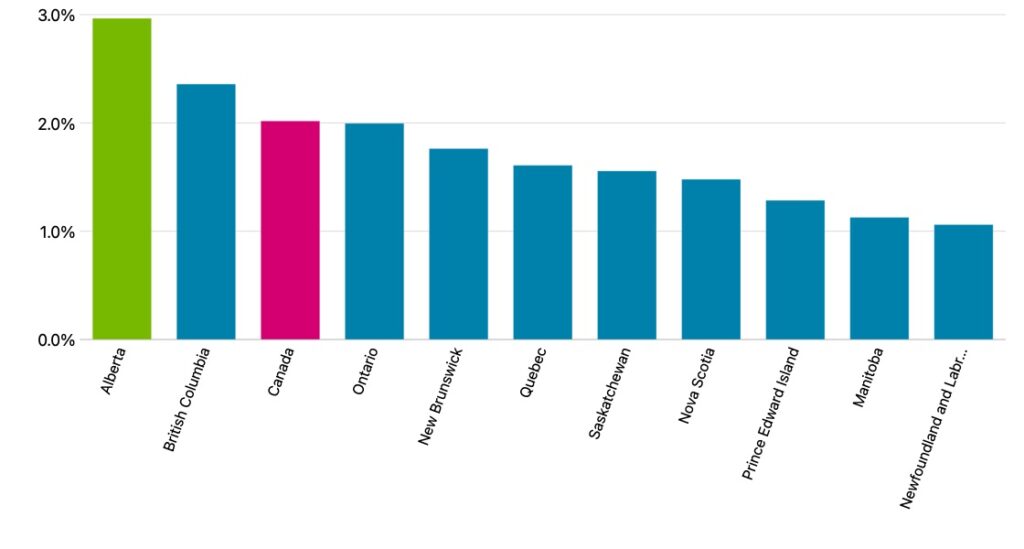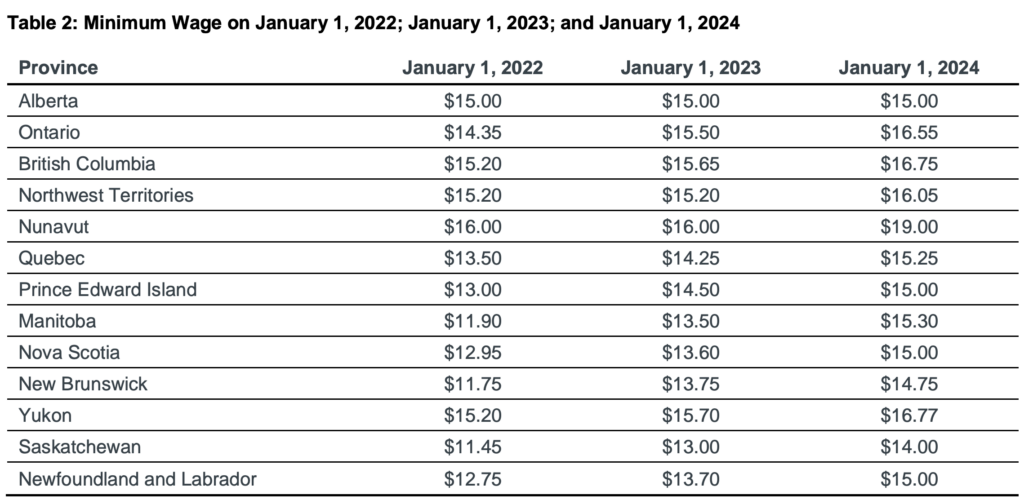In 2018, the Alberta provincial government would spark passionate reactions from different sectors after raising the minimum wage from $12.20 to $15—making it the highest in Canada at the time. Business associations would come out to criticize the measure while labour union representatives supported it. However, it has now been six years since that decision and the minimum wage has not changed at all. Is “the Alberta advantage” still a thing in 2024?
Our province has a particular feature. Taxes, it is said, are lower; we only have the GST and the personal income tax, which is focused on income from work. Many think it is a relief to be taxed on only two things while the rest of the provinces have more taxing acronyms messing with their citizens’ income. However, according to Canada’s Consumer Price Index, Albertans have been paying 0.3 per cent more for their consumption than the country’s average as of Sept. 1, 2024.
While the trend is moving downward, we are still only below British Columbia and Ontario, provinces that are known for their large populations and high prices.

Even Quebec, which is the second-largest province by population, is below the national average of 1.6 per cent.
So what does that tell us? And is raising the minimum wage really a solution?
In six years, Alberta’s minimum wage has remained unchanged, making it the lowest in Canada in 2024 alongside Saskatchewan. This has translated the initial acclaim of 2018 into unease as the effect of inflation has continued to increase living costs—yet this is not reflected in the money people are putting into their pockets for formal paid work. For instance, earlier this year the Canadian government reformed the requirements for international students, increasing the Guaranteed Investment Certificate (GIC) required to cover student expenses from $10,000 to $20,635 in an attempt to bring it in line with current living costs. This reflects the inflation we see in our budgets and wallets.

I believe that increasing the minimum wage is long overdue, however, we need to analyse each of the scenarios this could lead to for the increase to positively impact regular citizens and small businesses trying to make their way in our province. It also needs to be gradual.
The laws of supply and demand should be regulated so the final price is not always passed on to the final consumer or affect the costs of production and services, which can take small businesses out of the market.
Increasing the minimum wage would generate higher income for individuals and households and therefore higher consumption. This, in time, will cause excessive demand and increase the costs of products and services. We would eventually be in the same vicious circle as before, with higher levels of inflation as an added bonus.
A clear example of this is housing and rental prices. Migration to Alberta, especially to Calgary and Edmonton, has increased rental prices substantially, causing many to live in groups or opt for something smaller in order to afford it—”legal basements” has become a common phrase on rental websites. The percentage increase in rent from one year to the next has been left to the discretion of landlords. Not only are they charging more, but they have caught on to this trend. It is no coincidence that many new homes are being built in areas known for their density due to universities and colleges in the vicinity. Where once there was only one house, now there are two, with two “legal basements.” Who regulates this? How would the price of these rentals be affected if people could earn higher incomes? Wouldn’t it become unsustainable again after some time?
Raising the minimum wage in Alberta is a necessity, but it is also true that regulations must be put in place so rising wages do not cause other costs of basic necessities to spiral out of control and have the opposite effect. Ultimately, raising wages is not a question that can be taken lightly. It requires thoughtfulness and planning to implement changes that primarily benefit citizens, but also allow economic development through healthy, non-predatory business growth practices.






